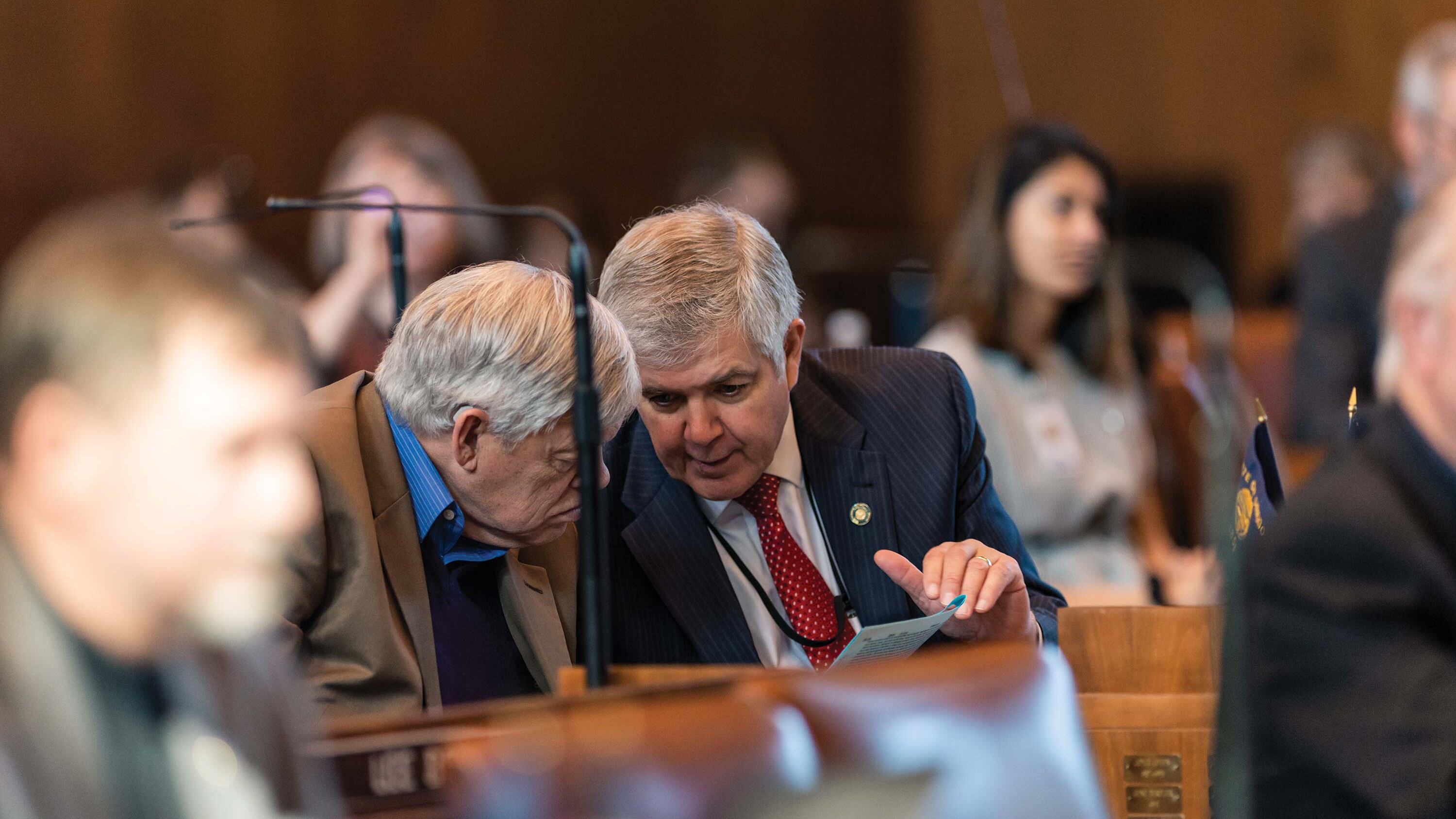WW has obtained the one-page document that formed the basis for Senate Republicans coming back to work May 13, after the first time this session they fled the Capitol to deny Democrats a quorum.
The document included a pledge not to walk out again. Yet Senate Republicans walked out a second time last week.
In their earlier walkout, the Republican senators wanted to block a Senate vote on House Bill 3427, the "Student Success Act," which will raise more than $1 billion a year for schools.
Negotiations between Gov. Kate Brown, Senate President Peter Courtney (D-Salem) and Senate Minority Leader Herman Baertschiger, Jr. (R-Grants Pass) led to a May 13 agreement that convinced the Republicans to return to the Capitol.
The newly obtained document shows that, when they fled the Capitol June 20 in an effort to block a cap-and-trade bill, the Senate Republicans violated the first point of the of the May 13 agreement.
Here's what it said:
"Senate Republicans will not walk out again during the 2019 Regular Legislative Session, ending June 30, 2019."
Here's the document:

The document is dated May 13 and initialed by Brown (GKB), Courtney (PC) and Baertschiger (initials above Courtney's).
Walking out of the Legislature to deprive the majority party of a quorum is a rare but not unheard-of practice around the country. (Oregon House Democrats did it in 2001.) What's less common is violating a written agreement. But there's disagreement about who did that.
Some points in the deal were clearly upheld. Republicans returned May 13 for a vote on HB 3427 (it passed); Democrats killed House Bill 3063 (a vaccine requirement bill) and Senate Bill 978 (a gun safety bill).
Whether Senate Bill 2020 got the "reset" promised in the document is a matter of interpretation.
In an email, Baertschiger says it did not.
"Cap and Trade never got a reset," he writes. "Part of the agreement was to change the entire bill number. A new bill number would have ensured Sen. Bentz would have been at the table to have a true reset."
"In our last-ditch effort on Wednesday to reset the bill, Senator Bentz took great care to lay out how we can reduce carbon and incentivize people in this transition with a revenue neutral approach. But his 8 plus hours of work that day was dismissed minutes after he left by the very folks that leaked this document."
Bentz (R-Ontario), the GOP's lead negotiator on climate, was involved in numerous meetings after returning to the Capitol, including the meeting Baerschiger references, when he sat down for a marathon session with Brown's chief of staff, Nik Blosser and state Rep. Karin Power (D-Milwaukie), the lead House expert on cap and trade, just before the Republicans walked out for the second time.
Lawmakers also held five work sessions and a public hearing on HB 2020 after Republicans returned, considered numerous amendments, and actually did amend the bill twice, to the consternation of environmentalists.
In addition, Democrats passed Senate Bill 1051 after Republicans returned from their first walkout. That bill provides relief for low-income motorists and loggers and other buyers of off-road diesel who might be affected by HB 2020's higher fuel prices.
The fact that GOP senators aren't back in Salem yet supports the widespread belief in the Capitol that their second walk-out was about more than HB 2020, that it was about figuring out how to undercut other Democratic priorities, including the corporate tax passed earlier in the session and is set for referral.
The existence of the May 13 document also makes more puzzling Courtney's decision this morning to announce on the Senate floor that he did not have the 16 Democratic votes necessary to pass HB 2020. Rather than trying to hold Republicans to the agreement, Courtney capitulated.
The way Baertschiger sees it, however, Democrats had no moral high ground to hold. He says they violated point number 6 in the the agreement—a promise not to retaliate—when they passed a bill that banned coyote-hunting contests.
"Number 6 says no retaliation," Baertschiger says. "The coyote bill, Senate Bill 723, only affected one county in Sen. Bentz's district and he is the one member that is listed in bullet point five. Clear retaliation. The Democrats fundamentally broke the deal."

